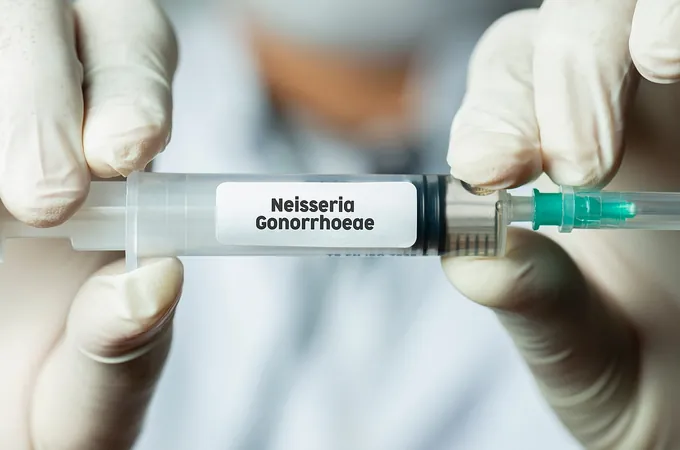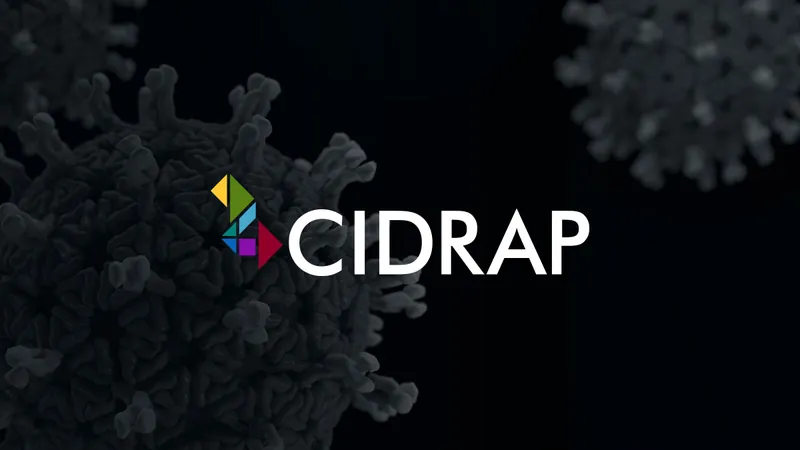
Revolutionary New Antibiotic Pill Offers Hope Against Drug-Resistant Gonorrhea
2025-04-16
Author: Wei Ling
In a significant breakthrough for sexual health, a new antibiotic pill is demonstrating remarkable effectiveness in treating gonorrhea, even against strains resistant to current medications. This exciting development comes at a time when health officials are sounding alarms over the increasing difficulty of treating this sexually transmitted infection (STI).
The investigational drug, known as gepotidacin, was recently the focus of a major international study published in *The Lancet* on April 14, 2025. Initially approved for urinary tract infections, gepotidacin represents the first new treatment for gonorrhea in decades, showing promising results.
Featuring robust efficacy, gepotidacin works just as effectively as the established treatment regimen, which combines an injection of ceftriaxone and an oral dose of azithromycin. This oral antibiotic could be a game-changer, particularly for individuals who cannot tolerate injections, those allergic to ceftriaxone, or situations where existing treatments fall short.
How does it work? Gepotidacin attacks the bacteria’s ability to replicate its DNA, employing a novel mechanism distinct from traditional antibiotics. This innovative approach offers a fresh perspective in the ongoing battle against antibiotic-resistant infections.
Gonorrhea, often colloquially referred to as 'the clap', spreads through unprotected vaginal, oral, or anal sex and can be transmitted from mother to child during childbirth. Caused by the bacterium Neisseria gonorrhoeae, it usually manifests with symptoms like discharge in men, but many women remain asymptomatic, complicating diagnosis and treatment.
Untreated gonorrhea can lead to severe health complications, particularly for women, including infertility and chronic pelvic pain and can also heighten HIV risk.
The recent clinical trial included 628 participants diagnosed with uncomplicated gonorrhea. Half took two doses of oral gepotidacin, while the other half were treated with the standard regime. Remarkably, 93% of those treated with gepotidacin were cured within 4-8 days, closely rivaling the 91% success rate of the existing treatment. Notably, gepotidacin achieved a perfect success rate in clearing rectal infections, while its effectiveness dipped to 78% for throat infections.
Despite mild side effects like nausea and diarrhea, the drug showed no serious adverse effects in the study. This is especially noteworthy against the backdrop of rising antibiotic-resistant gonorrhea cases in the UK. The UK Health Security Agency (UKHSA) reported a worrying increase, with 17 cases of ceftriaxone-resistant gonorrhea documented from January 2024 to March 2025, surpassing the total for the previous two years.
Of these, nine cases were classified as extensively drug-resistant. Many instances of resistance are linked to travel in the Asia-Pacific region, highlighting the global nature of this health crisis.
Dr. Katy Sinka of the UKHSA echoed these concerns, emphasizing the urgent situation as gonorrhea evolves toward potential untreatability. She encouraged anyone engaging in condomless sexual activity with new or casual partners to get tested, regardless of feeling asymptomatic.
While gepotidacin holds promise, health experts caution against potential overuse, which could lead to resistance against this new medication. Continuous efforts in STI prevention, routine testing, and the development of additional treatments—and perhaps even a vaccine—are critical. The World Health Organization has underscored the pressing necessity for new antibiotics as resistance to existing medications continues to mount globally, especially in Asia and Europe.


 Brasil (PT)
Brasil (PT)
 Canada (EN)
Canada (EN)
 Chile (ES)
Chile (ES)
 Česko (CS)
Česko (CS)
 대한민국 (KO)
대한민국 (KO)
 España (ES)
España (ES)
 France (FR)
France (FR)
 Hong Kong (EN)
Hong Kong (EN)
 Italia (IT)
Italia (IT)
 日本 (JA)
日本 (JA)
 Magyarország (HU)
Magyarország (HU)
 Norge (NO)
Norge (NO)
 Polska (PL)
Polska (PL)
 Schweiz (DE)
Schweiz (DE)
 Singapore (EN)
Singapore (EN)
 Sverige (SV)
Sverige (SV)
 Suomi (FI)
Suomi (FI)
 Türkiye (TR)
Türkiye (TR)
 الإمارات العربية المتحدة (AR)
الإمارات العربية المتحدة (AR)